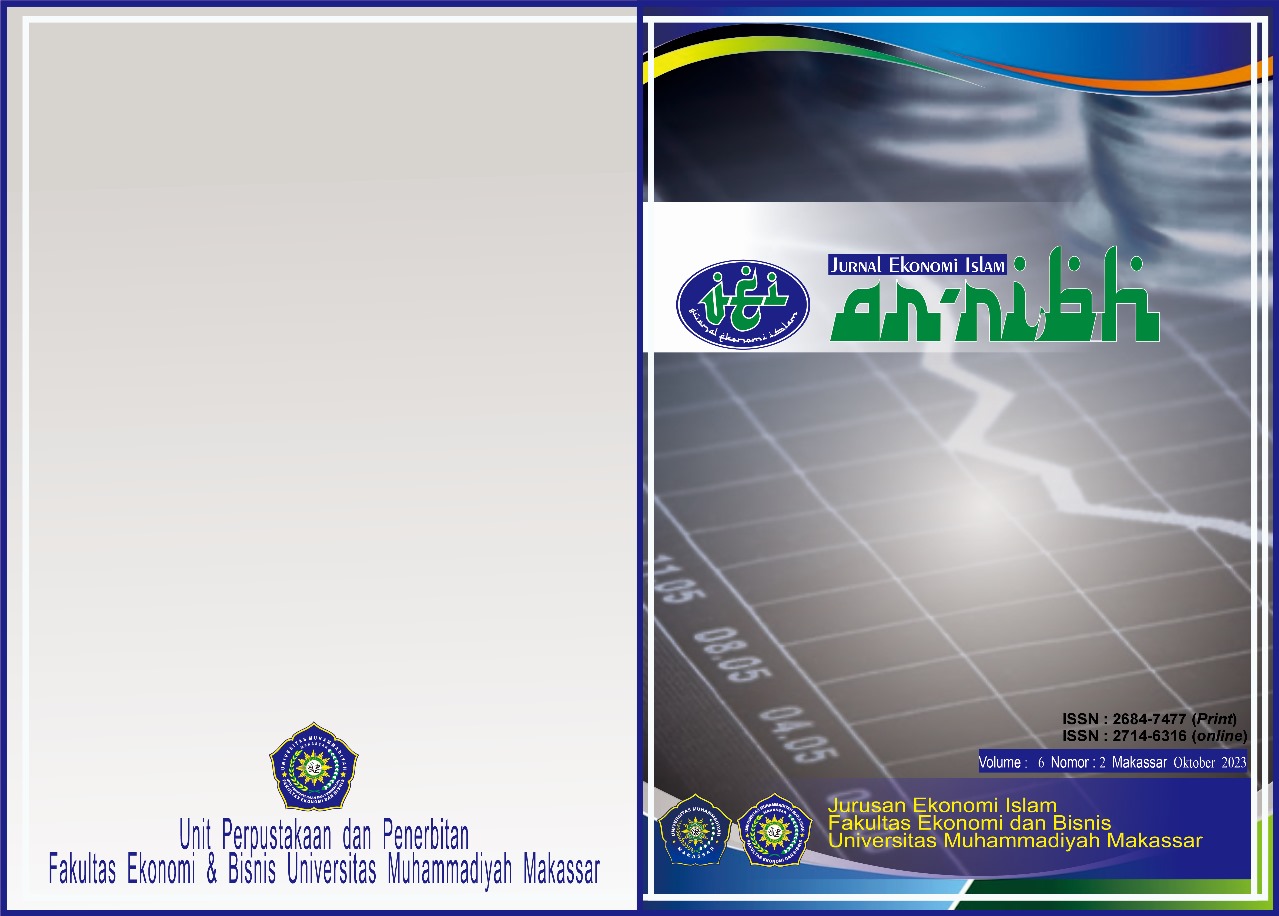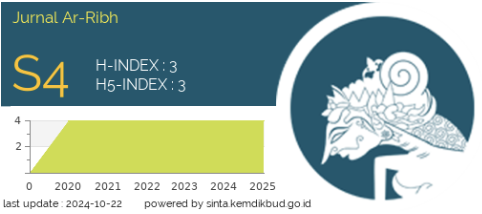Social Media, Halal Marketing and Consumer Behavior (Study in Fashion and Cosmetic Product)
DOI: https://doi.org/10.26618/jei.v6i2.12814
Abstract
Consumers have become more sensitive to what they consume. Comprehensive information search and more accessible information acquisition will make it easier for consumers to make decisions. Social media is a supporting aspect for consumers in making decisions. Social media, which was previously used for personal communication, has now been used for communication in the broader business realm and plays a role as one of the supporters in the halal marketing process. The use of social media in marketing helps producers or sellers inform that the products being sold are halal products for Muslim consumers. Through social media, consumers can also easily obtain detailed information about a product before consumers make purchasing decisions. Halal marketing has become phenomenal in recent years because several products not in the form of food products have been branded as halal products. Products that are pioneers in halal branding include fashion and cosmetic products. This effort has altered the view that halal products are only limited to food products. This study used an interview method with 106 samples of productive age from several districts and cities in South Sulawesi Province. The results showed that 80% of the sample wanted cosmetic products to be halal to make purchasing decisions. In contrast, for fashion products, only 30% of the samples required the product to be halal to make a purchase decision.
References
Lee, M. and Youn, S. (2009). Electronic word of mouth (eWOM): how eWOM platforms influence consumer product judgement. International Journal of Advertising, Vol. 28 No. 3, pp. 473- 499.
Muhammad Faisal Yul Zamrudi, Bae, Il-Hyun. (2022).Social Media Marketing Strategies in The Global Halal Industry. CONSERVA, Jurnal Penelitian dan Pengabdian Masyarakat.Volume 2 No. 1 Mei 2022 (71-80).e-ISSN: 2798-5210
H. Heryanto, F. Firdaus, and S. Syafrizal, "Halal Marketing Elements as Determinants of Consumer Product Purchase Decisions," Indonesia Journal of Halal, vol. 5, no. 1, pp. 81-86, Jun. 2022. https://doi.org/10.14710/ halal.v5i1.13776
Professor Akin Fadahunsi & Dr. Samia Kargwell. Social Media, Consumer Behavior and Marketing Strategy: Implications of “Halal” on Islamic Marketing Operations. Journal of Small Business and Entrepreneurship Development June 2015, Vol. 3, No. 1, pp. 36-43 ISSN: 2333-6374 (Print), 2333-6382 (Online).
Kamarulzaman, Y., Veeck, A., Mumuni, A. G., Luqmani, M., & Quraeshi, Z. A. (2015). markets through a netnographic study of the search for halal food in the U.S. Journal of Macromarketing, 36(4), 400–411.
Azam, M. S. E., & Abdullah, M. A. (2020). Global Halal Industry: Realities and Opportunities. International Journal of Islamic Business Ethics, 5(1), 47–59. https://doi.org/10.30659/ijibe.5.1.47-59
Chaffey, D., (2010) “Back to direct marketing basics: how digital marketers can learn from DM”, Smart Insights, April 26, 2010.
Hoffman, D. L., and Fodor, M., (2010) Can you measure the ROI of your social media marketing? MIT Sloan Management Review, 52(1), 41-49.
Hirschman, E. C., (2010) Evolutionary branding Psychology and Marketing 27(6), 1583-1594.
Canniford, R., (2011) How to Manage Consumer Tribes Journal of Strategic Marketing 19(7), 1-17.
Goulding, C., Shankar, A., and Canniford, R., (2013) "Learning to be Tribal: Facilitating the Formation of Consumer Tribes", European Journal of Marketing, 47(5), 91-106.
Syed Alamdar Ali Shah et al (2019).Effects of Halal social media and customer engagement on brand satisfaction of Muslim customer Exploring the moderation of religiosity. Journal of Islamic Marketing © Emerald Publishing Limited 1759-0833 DOI 10.1108/JIMA-06-2019-0119
Ahamedullah, M. (2015). Islamic marketing ethics and its application in Islamic banking industry.
Abdullah, Burhanuddin, 2011. Manajemen Sumber Daya Manusia Perusahaan. Jakarta: PT. Raja Grafindo Persada
Al-Ghazali,Imam.(2002).Benang Tipis antara Halal dan Haram.Surabaya:Putra Pelajar
Bartells, R. (1967). A Model for Ethics in Marketing, Journal of Marketing, 31[January], 20-26. http://dx.doi.org/ 10.2307/1249296
Friedman, H. (2000). Biblical Foundations of Business Ethics, Journal of Markets and Morality 3 (1), 43-57.
Dominici, G. (2009). From Marketing Mix to E-Marketing Mix: A Literature Overview and Classification. Journal of Business and Management 4 (9), 17-24. http://dx.doi.org/10.5539/ijbm.v4n9p17
Smith, N.C.& Murphy, C.E. (2013). Marketing Ethics: A Review of the Field, Working Paper. Social Innovation Center, INSEAD, France.
Allah Pitchay, A. (2012). Marketing Mix from Islamic Marketing Perspective, [Unspecified affiliation], Retrieved October 5th 2014 from
Annisah Monica Juliyanti, Rheesty Illahyana, Zul Fikri, Asnaini , Herlina Yustati. 2021. PERILAKU KONSUMEN DALAM MEMBELI PRODUK HALAL PADA MAHASISWA DI KOTA BENGKULU.Journal of Islamic Economics and Philanthropy (JIEP). E-ISSN : 2655-335X, VOL. 04, No. 02, Agustus, 2021 http:// dx.doi.org/10.21111/jiep.v4i03.6577
Kotler, Philip. 2005. Manajemen Pemasaran. Jilid 1 dan 2. Jakarta : PT Indeks Kelompok Gramedia.
Ratih Hesty Utami Puspitasari.2019. ANALISIS PENGARUH KEPUTUSAN PEMBELIAN PADA KOSMETIK BERLABEL HALAL.Business Management Analysis Journal (BMAJ) 2655-3813 (Online) Vol. 2 No. 1 - April 2019
Karina Indah Rohmatun, Citra Kusuma Dewi, (2017)Pengaruh Pengetahuan Dan Religiusitas Terhadap Niat Beli Pada Kosmetik Halal Melalui Sikap. Jurnal Ecodemica, Vol. 1 No. 1 April 2017














